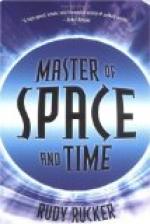The entrance of the Western Union Telegraph Company into the telephone field brought the affairs of the Bell company to a crisis. As we have seen, the telegraph company had developed into a great and powerful corporation with wires stretching across the length and breadth of the land and agents and offices established in every city and town of importance. Once the telephone began to be used as a substitute for the telegraph in conveying messages, the telegraph officials awoke to the fact that here, possibly, was a dangerous rival, and dropped the viewpoint that Bell’s telephone was a mere plaything. They acquired the inventions of Edison, Gray, and Dolbear, and entered the telephone field, announcing that they were prepared to furnish the very best in telephonic communication. This sudden assault by the most powerful corporation in America, while it served to arouse public confidence in the telephone, made it necessary for Hubbard to reorganize his forces and find a general capable of doing battle against such a foe.
Hubbard’s political activities had brought to him a Presidential appointment as head of a commission on mail transportation. In the course of the work for the Government he had come much in contact with a young man named Theodore N. Vail, who was head of the Government mail service. He had been impressed by Vail’s ability and had in turn introduced Vail to the telephone and aroused his enthusiasm in its possibilities. This Vail was a cousin of the Alfred Vail who was Morse’s co-worker, and who played so prominent a part in the development of the telegraph. His experience in the Post-office Department had given him an understanding of the problems of communication in the United States, and had developed his executive ability. Realizing the possibilities of the telephone, he relinquished his governmental post and cast his fortunes with the telephone pioneers, becoming general manager of the Bell company.
The Western Union strengthened its position by the introduction of a new and improved transmitter. This was the work of Thomas Edison, and was so much better than Bell’s transmitter that it enabled the Western Union to offer much better telephonic equipment. As we have seen, Bell’s transmitter and receiver were very similar, being about the same as the receiver now in common use. In his transmitter Edison placed tiny bits of carbon in contact with the diaphragm. As the diaphragm vibrated under the sound-impulses the pressure upon the carbon granules was varied. An electric current was passed through the carbon particles, whose electrical resistance was varied by the changing pressure from the diaphragm. Thus the current was thrown into undulations corresponding to the sound-waves, and passed over the line and produced corresponding sounds in the receiver. Much stronger currents could be utilized than those generated by Bell’s instrument, and thus the transmitter was much more effective for longer distances.




